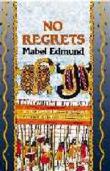AustLit
Latest Issues
AbstractHistoryArchive Description
Notes
-
Highly commended by Jack Dave, Oodgeroo Noonunccal and Mudrooroo Narogin for the David Uaipon Award
-
Dedication: to Phylis Leo (1920-1992) my lifelong friend.
Publication Details of Only Known VersionEarliest 2 Known Versions of
Works about this Work
-
Cultural Heritage and Identity in the Literature of Australian South Sea Islanders and Other Media
2013
single work
criticism
— Appears in: Etropic : Electronic Journal of Studies in the Tropics , vol. 12 no. 1 2013;'Australian South Sea Islanders represent a small community whose ancestors mainly came from Melanesian Islands to work as indentured labour in the sugar cane plantations of Queensland from the 1860’s to the beginning of the 20th century. Many still live near the old sugar towns, but apart from an official recognition of their existence and distinctiveness by the Federal Government in 1994 and by the Queensland Government in 2000, South Sea Islanders’ culture, economic and political roles are still underrepresented or even ignored in Australia. In the 1970’s, writers belonging to that community, such as Faith Bandler, Mabel Edmund and Noel Fatnowna started to tell their own family history since the arrival of their first ancestors on the continent. These autobiographical accounts enabled them to reassert their identity as a culturally distinct group and to shed light on a part of Australia’s forgotten past. Other written testimonies followed at the beginning of the 21st century but the lack of young South Sea Islander writers induced us to look at their other means of expression to promote their culture and complete the missing parts of their personal and collective history. ' (Author's abstract)
-
Breaks and Connections : 'Breaks in Time' : A Warana Writers' Week Highlight
1992
single work
column
— Appears in: Scope , November vol. 37 no. 10 1992; (p. 15) -
No Regrets by Mabel Edmund
1992
single work
review
— Appears in: Idiom 23 , November-December vol. 5 no. 2 1992; (p. 79)
— Review of No Regrets 1992 single work autobiography
-
No Regrets by Mabel Edmund
1992
single work
review
— Appears in: Idiom 23 , November-December vol. 5 no. 2 1992; (p. 79)
— Review of No Regrets 1992 single work autobiography -
Breaks and Connections : 'Breaks in Time' : A Warana Writers' Week Highlight
1992
single work
column
— Appears in: Scope , November vol. 37 no. 10 1992; (p. 15) -
Cultural Heritage and Identity in the Literature of Australian South Sea Islanders and Other Media
2013
single work
criticism
— Appears in: Etropic : Electronic Journal of Studies in the Tropics , vol. 12 no. 1 2013;'Australian South Sea Islanders represent a small community whose ancestors mainly came from Melanesian Islands to work as indentured labour in the sugar cane plantations of Queensland from the 1860’s to the beginning of the 20th century. Many still live near the old sugar towns, but apart from an official recognition of their existence and distinctiveness by the Federal Government in 1994 and by the Queensland Government in 2000, South Sea Islanders’ culture, economic and political roles are still underrepresented or even ignored in Australia. In the 1970’s, writers belonging to that community, such as Faith Bandler, Mabel Edmund and Noel Fatnowna started to tell their own family history since the arrival of their first ancestors on the continent. These autobiographical accounts enabled them to reassert their identity as a culturally distinct group and to shed light on a part of Australia’s forgotten past. Other written testimonies followed at the beginning of the 21st century but the lack of young South Sea Islander writers induced us to look at their other means of expression to promote their culture and complete the missing parts of their personal and collective history. ' (Author's abstract)




